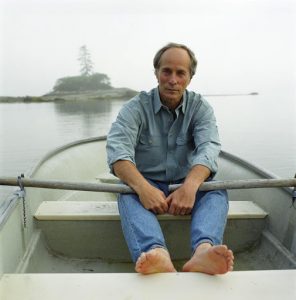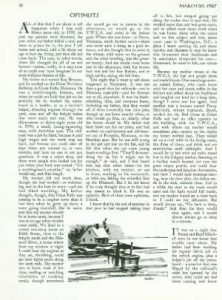One of the most interesting aspects of the novel was that of the relationship between Stevens and his father. Not only are their stories strikingly similar, but so are their personalities and the revelations that they have later on in life. Stevens is unwilling to admit his own faults, but maybe “faults” is too tough of a word; rather, he is extremely stubborn whenever it comes to admitting that he has areas that he is weaker in like his humor. More unconsciously, he doesn’t seem to understand that emotions don’t make much sense to him, nor does understanding other people’s emotions come easily to him either. He’s quick to write off deeper desires multiple times in the novel, like whenever Miss Kenton adamantly tries to see the book that he was reading for fun, and the irony of that is that Stevens doesn’t even seem to realize that he’s letting his own love story (that sounded less sappy in my head) slip away from him.
So, going back to his father, he takes a lot of pride in how his father has always carried himself; his father’s reputation, even him just getting older, he seems to have this stiffness about. He understands that his father isn’t as young as he used to be, but he takes it as almost a personal affront whenever people start suggesting that he shouldn’t do all of the jobs that he previously did. His father is nearly this extension of himself and how Stevens carries himself: professionally, respectfully, and responsibly. Yet, his father’s last words to his son are: “I hope I’ve been a good father to you.” and “I’m proud of you. A good son. I hope I’ve been a good father to you. I suppose I haven’t.” As far as I can recall, that’s the most emotionally vulnerable his father’s ever been with him. I just find it ironic how the last scene in the book, now that Stevens is older (maybe not too far removed from how old his own father was whenever he passed away), is of him sitting on the pier after realizing that maybe he actually did want to have a life with Miss Kenton. Maybe he wished he had have been the one to marry her. Maybe he could have something else in his life besides being a butler. (We as the readers know that he does think that way, but he only then was introspective and honest enough with himself to think about those possibilities.) It’s just interesting seeing how the two of them have so many parallels and similarities.
 who adapted to changes in a very optimistic way, yet Ford also creates in this same character an internal turmoil. It takes Frank years to finally realize how much of a toll that night has taken on him, but when he finally does, it seems to stabilize his life. He is able to open up and take things how they come.
who adapted to changes in a very optimistic way, yet Ford also creates in this same character an internal turmoil. It takes Frank years to finally realize how much of a toll that night has taken on him, but when he finally does, it seems to stabilize his life. He is able to open up and take things how they come.